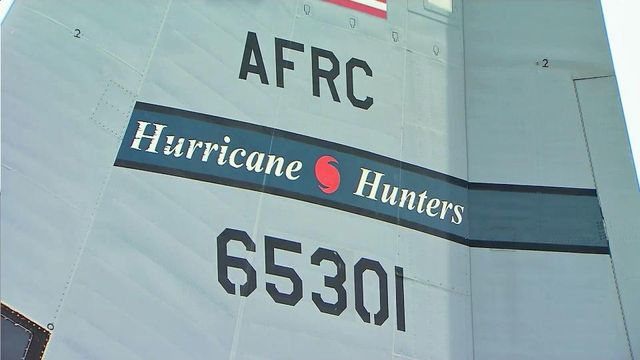Data from inside a tropical storm helps forecasters anticipate path
The National Hurricane Center is filled with intelligent scientists, but their work heavily relies on the hurricane hunters - air crews who fly into and around tropical systems to collect real-time data.
Posted — UpdatedThe National Hurricane Center is filled with intelligent scientists, but their work heavily relies on the hurricane hunters – air crews who fly into and around tropical systems to collect real-time data.
Angel Negron, a crew chief with the National Oceanic and Atmospheric Administration’s Hurricane Hunter team, said data collected inside a storm helps to narrow the "cone of uncertainty."
"It limits the amount of coastline that has to be evacuated, and when you make that cone smaller, you are making the evacuation zone smaller as well," he explained.
A single flight can last about 10 to 11 hours, but the data collected improves forecasts by 25-30 percent, according to the National Hurricane Center. Typically, the crew spends six hours inside of a storm releasing instruments to collect pressure, temperature and humidity. The data is then transmitted to a computer on the aircraft and quickly processed.
"A lot of times, by the time we land, there will be a new forecast out there," Negron said.
Ivan Deroche, a Hurricane Hunter pilot, said within the eyewall the views are spectacular.
"It actually does look like a large football stadium," Deroche said. "It's tighter in the bottom and a little more open at the top, and its clouds are stacked from the surface to wherever the tops of the thunderstorms are. It can easily be 40,000 feet."
Deroche said the job can be a dangerous one.
"Last year, or the year before last, (one of my colleagues) got sucked into what he thought was a less severe area of the eyewall to penetrate, and it actually was a radar presentation called a v-notch," he said. "He actually flew into a mesocyclone and had a handful of airplane. "
Deroche said he is hoping trends over the last few seasons continue.
"I like the seasons where they don't make landfall," he said. "We were busy the last few years and saw very few landfalls, which is great. But, we flew our butts off."
• Credits
Copyright 2024 by Capitol Broadcasting Company. All rights reserved. This material may not be published, broadcast, rewritten or redistributed.






